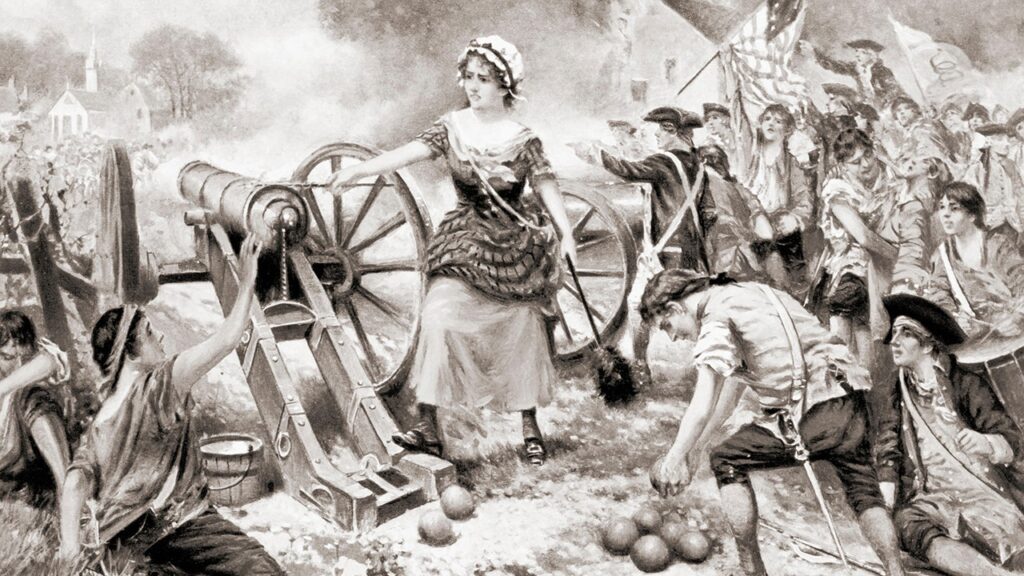On June 28, 1778, Mary Ludwig Hays became a legendary figure during the American Revolution when she offered water to her husband’s battery at the Battle of Monmouth. This act of bravery led to her being known as “Molly Pitcher.” Mary Ludwig was born on Oct. 13, 1754, the exact location of her birth is a topic of debate among historians, with some claiming she was born in Philadelphia, Pennsylvania, while others argue she was born in New Jersey.
Mary married William Hays, a barber, in her early 20s. When William enlisted in the 4th Pennsylvania Artillery and joined the Continental Army at the start of the American Revolutionary War, Mary decided to follow him to camp. At the camp, she took on responsibilities such as washing clothes and caring for the sick soldiers.
During the Battle of Monmouth on June 28, 1778, Mary Hays demonstrated incredible courage by bringing water to thirsty soldiers on the battlefield. She continued to care for wounded soldiers until her own husband was injured. This selfless act endeared her to the troops and solidified her legacy as an American patriot and hero.
In recognition of her service, a U.S. postage stamp featuring Molly Pitcher was issued on Oct. 20, 1928. According to legend, when William Hays was unable to continue fighting, Mary took his place in the gun crew for the rest of the battle. General George Washington, who was present during the conflict, is said to have promoted her to sergeant the day after the battle.
After the war, Mary and William Hays returned to Pennsylvania and settled in Carlisle. Mary took on domestic work and also worked as a “charwoman” in the State House. William passed away in 1786, and in 1793, Mary married John McCauley, another war veteran. Mary was eventually granted a pension by the Pennsylvania State Legislature in 1822.
Mary Hays passed away on Jan. 22, 1832, and she was laid to rest in Carlisle, Pennsylvania. A statue in her likeness stands in the Old Graveyard in Carlisle as a tribute to her remarkable service during the American Revolution. It wasn’t until the anniversary of the war in 1876 that a marker acknowledging her courage was placed on her grave.
Despite some skepticism surrounding the legend of Molly Pitcher, her story continues to be celebrated as a tribute to the countless Revolutionary women who played crucial roles in shaping the new nation. Mary Ludwig Hays’ legacy lives on as a symbol of courage, selflessness, and dedication to the cause of freedom.












